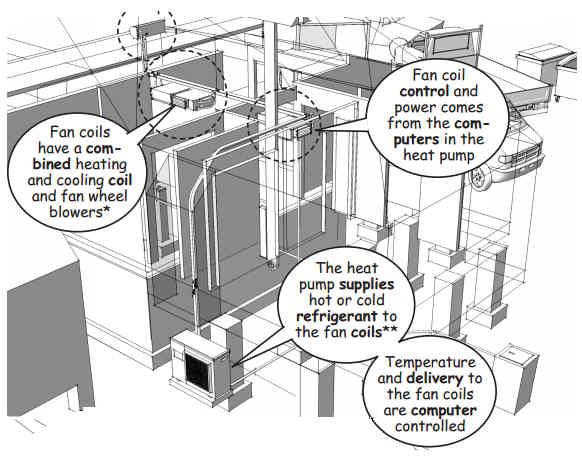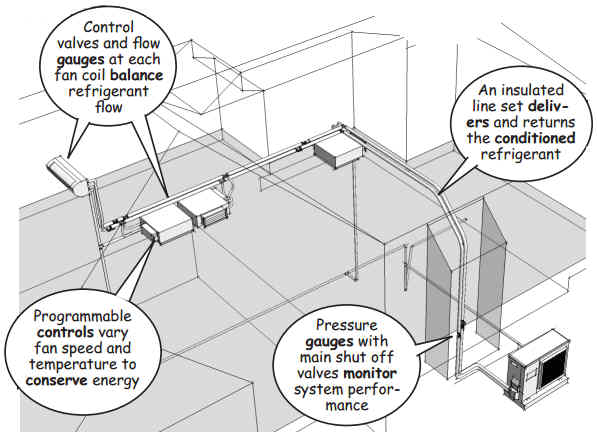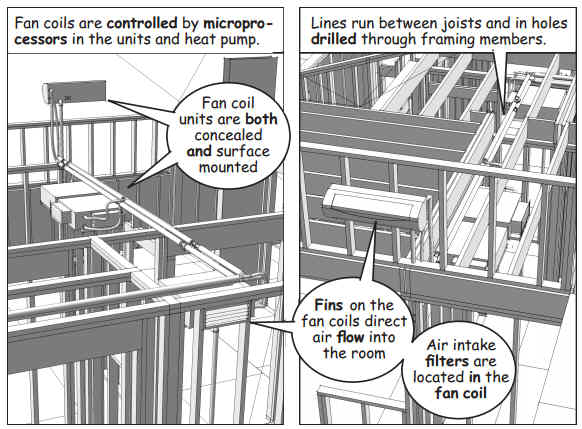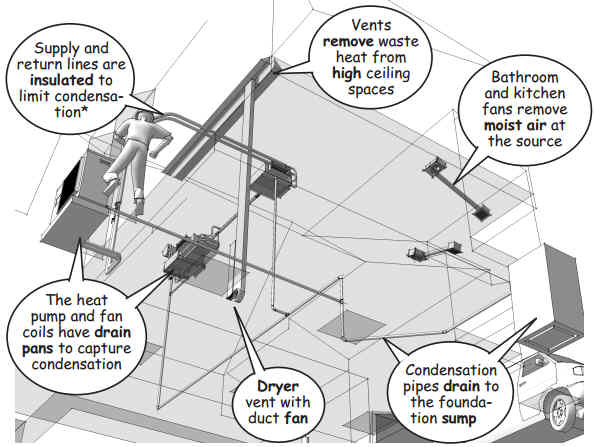Ducted air conditioning systems are easier to access and maintain than ductless systems because there’s a single outdoor unit and a single indoor air handler. Regular filter changes are required, but frequency depends on local conditions. The ducts themselves do not require cleaning under ordinary circumstances.
Ductless HVAC
On the other hand, ductless air conditioning systems, also known as “split systems, are flexible to install and efficient to operate. They include outdoor heat pumps that deliver conditioned refrigerant to indoor air handlers called fan coils, or blowers.

The coils in the air handlers are cooled or heated by refrigerant supplied from the heat pumps. A circular fan blows room air over the coils to condition the space. The temperature of the coils and fan speeds are regulated by programmable controllers.

Individual air handlers make it possible to heat or cool the spaces separately. This reduces energy demand and increases operational efficiency because the units are regulated independently.

Control wiring as well as supply, return, and condensation tubing are installed as a bundled line-set within the framing. The line-sets are placed before interior finishes are completed. The distance from the outdoor unit to the indoor air handler is limited by the manufacturer and system specifications.

Room layout and the location of the blowers must be carefully considered to minimize draft and stagnant pockets of air.

A dryer cycle dehumidifies indoor air to improve room comfort. This reduces the need for conditioned air in a well insulated building.
In areas with high humidity, condensation must be carefully controlled to prevent damage and mold. A pan captures condensation below the coil and drains the moisture through flexible tubing to an outside sump.

Direct ventilation is also necessary to reduce humidity and heating and cooling loads from point sources like bathrooms, appliances, kitchens, and high ceilings.
Power to the fans and control circuitry are supported by electrical wiring installed during the next phase of the construction. . .
(To be continued…)
---------------------------
The material presented in this series has been taken from our book, “How a House is Built: With 3D Construction Models” The book includes annotated illustrations, captioned text, videos, models, and the 2D Preliminaries.

